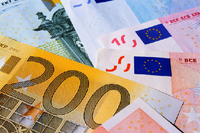

Capital gains tax (impôt sur les plus-values) is payable on the profit from sale of certain assets in France, including antiques, art and jewellery, securities and property. Gains net of capital gains tax (CGT) are added to other income and are liable to income tax.
Capital gains are also subject to social security contributions at 8 per cent. The Finance Act, 2004 requires a notaire handling a property sale to calculate and pay CGT on behalf of the vendor (to prevent unscrupulous vendors failing to declare a capital gain).

CGT isn’t payable on a profit made on the sale of your principal residence in France, provided that you’ve occupied it since its purchase (or for at least five years if you didn’t occupy it immediately after purchase). You’re also exempt from CGT if you’re forced to sell for family or professional reasons, e.g. you’re transferred abroad by your employer. Income tax treaties usually provide that capital gains on property are taxable in the country where the property is located.
If you move to France permanently and retain a home abroad, this may affect your position regarding capital gains. If you sell your foreign home before moving to France, you will be exempt from CGT, as it’s your principal residence. However, if you establish your principal residence in France, the foreign property becomes a second home and is thus liable to CGT when it’s sold. EU tax authorities co-operate in tracking down CGT dodgers.
Capital gains on second homes in France worth over €15,000 (i.e. anything other than a caravan!) are payable by both residents and non-residents up to 15 years after purchase (until 2004, the period was 22 years). The basic rates of CGT are 26 per cent for residents, 16 per cent for non-resident EU citizens, and 33.3 per cent for non-resident non-EU citizens. Any inheritance or gift tax paid at the time of purchase is taken into account when determining the purchase price, and there are certain exemptions to the above tax rates, as follows:
However, the purchase price of a property is no longer ‘indexed’ to increases in the cost of living. Note also that, if you make a loss on the sale of a second home, you cannot claim this against other CGT payments, nor against income tax!
Before a sale, the notaire prepares a form calculating the tax due. If you’re non-resident and are selling a property you’ve owned for less than 15 years for more than e150,000, you must appoint an ‘accredited financial agent’ (agent fiscal accrédité), which can be an accountant or notaire, or use one appointed by the notaire.
You aren’t obliged to use a member of the Société Accréditée de Représentation Fiscale (SARF), who charge a fee of 1 per cent of the sale price. If the transaction is straightforward, the local tax office may grant a dispensation (dispense) of the need to appoint a guarantor, provided you apply before completion of the sale. If you obtain a dispensation, the proceeds of the sale can be released to you in full after CGT has been paid. The notaire handling the sale must apply for the dispensation and must declare and pay CGT on your behalf; you’re no longer required to make a CGT declaration.
This article is an extract from Buying a home in France. Click here to get a copy now.